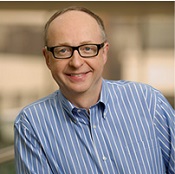 |
| BMS CSO Francis Cuss |
Bristol-Myers Squibb ($BMY) is acquiring private biotech Cardioxyl Pharmaceuticals in a deal that could be worth more than $2 billion, bringing in a Phase II treatment for heart failure.
Under the deal, Bristol-Myers is paying $300 million up front for Cardioxyl and promising the company as much as $1.8 billion more tied to development, regulatory and sales milestones. The big target is the intravenous CXL-1427, which transforms into the compound nitroxyl once in the body and boosts heart muscle and vascular function, according to Cardioxyl. In early-stage studies, the drug did its job without raising patients' heart rates, the company said, potentially differentiating it from other heart failure therapies already on the market.
The deal, expected to close in the fourth quarter, also brings Bristol-Myers some preclinical treatments for congestive heart heart failure and pulmonary arterial hypertension. Bristol-Myers' cardiovascular pipeline is thin compared with many of its rivals', led by the marketed anticoagulant Eliquis and rounded out by a Phase II treatment for atrial fibrillation and a Phase I thrombosis therapy.
"The acquisition of Cardioxyl strengthens Bristol-Myers Squibb's heart failure pipeline with a Phase II asset that has the potential to change the course of the disease rather than simply treating the symptoms," Chief Scientific Officer Francis Cuss said in a statement.
Meanwhile, the landscape in heart failure treatment shifted this year with the launch of Novartis' ($NVS) Entresto, an oral treatment that charted an impressive effect on mortality and hospitalization on the way to approval. But even that drug, long predicted to reach blockbuster status, has had some trouble cracking a market laden with cheap generics and physicians wary of trying something new. Bristol-Myers, buying its way into the field, is taking on a high-risk, high-reward project that will need to succeed in a series of large late-stage trials before even sniffing the market.
Cardioxyl, founded in 2005, raised about $52 million in venture cash on its way to taking a buyout, relying on stalwart investor New Enterprise Associates and Aurora Funds.
- read the statement